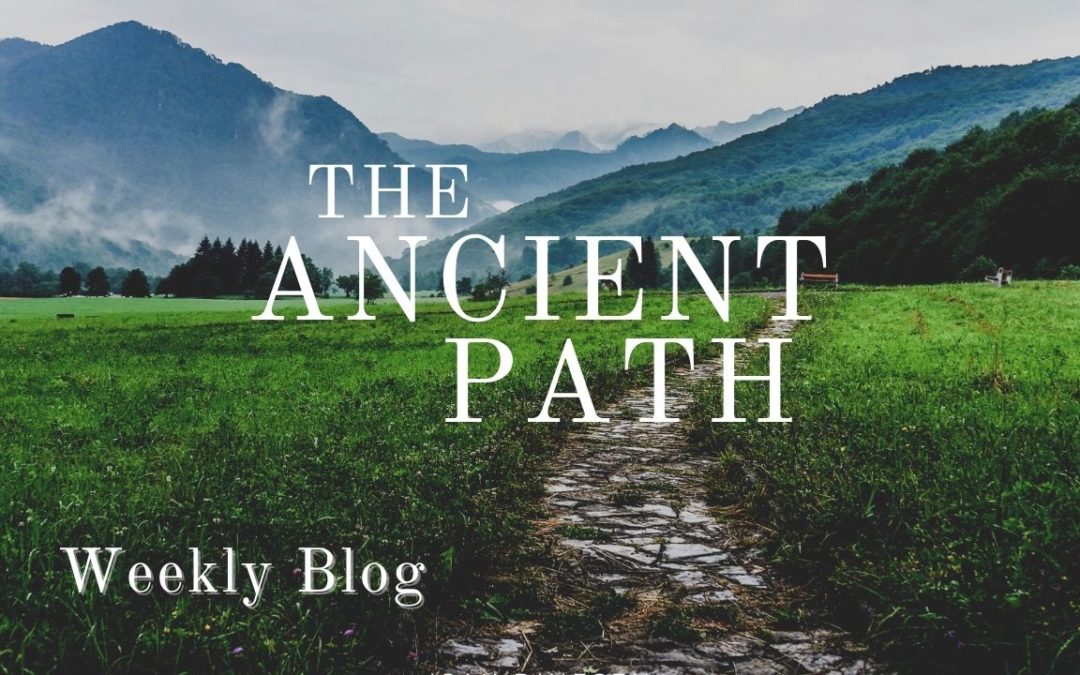REDISCOVERING THE ANCIENT PATH—Week of August 8, 2021
Die Daily: 1 Cor. 15:31
We are in Week 27 of our examination of Benedict Nursia’s rules for Christian formation. This week we’ll look at Rule 4.47: Die Daily. While we may be tempted to look at this from a spiritual point of view where we are called to lay down our rights for others (see Rom. 6), that is not the context of this admonition from Paul. Paul is literally talking about dying a physical death. This letter was written by Paul while he was establishing the church in Ephesus. At this point in his ministry, he had already been beaten with rods and whips and had even been stoned and left for dead at Lystra. Opposition to the gospel was growing in Ephesus and would soon force him to leave the city after there was a riot over his preaching. When Paul said he faced death daily, he meant it. That is obviously not the case for most of us, so how do we relate to such an admonition?
Truth is, unless we are confronted with a life-threatening illness or event, we rarely consider our own mortality. As part of my law practice involves estate planning, I can assure you that our mortality is something people generally don’t want to think about, let alone discuss. In fact, many put off seeing an attorney about end-of-life planning until something jars them into taking action. It is not a pleasant subject, and because of the general security and health of our modern society, it is a subject we can avoid for most of our lives if we so choose. We go about our lives believing there will always be tomorrow for those things we put off today. If we are not careful, we will sleepwalk through our lives, shielding ourselves from the reality of our own mortality and missing out on the opportunity to live the abundant life Jesus came to bring us.
The call to follow Jesus is a call to vigilance and expectation. We are called to do more than sleepwalk through life as if we are guaranteed tomorrow. We are called to be vigilant because we are sojourners in a world diametrically opposed to the gospel. We are called to be vigilant because we have been given the important mission of seeing that the gospel is preached in every tribe, nation, and tongue. We are called to be vigilant because as Paul tells us in verse 58 of this same chapter, we are to give ourselves fully to the work to which we’ve been called, because this work is not in vain. We are also called to live expectantly, for life is so much more than work, rest, repeat. Because Christ rose from the grave, we too look towards our resurrection and his return. We are called to live life expectantly, knowing at any moment Christ could return for us.
Thus, each day we should rise as if this day could be our last. We don’t do so out of some morbid fascination with death. Quite the contrary—we do so because we want to make the most of each day God has given us. Each day is a new opportunity to honor Christ’s sacrifice with our lives. We face death every day so that at the end of that day, we can claim it as a day lived well, a day of no regrets.
Questions:
- How does thinking about your mortality make you feel? Does it make you uncomfortable?
- Take a moment to evaluate how you spend most days? Would you say that you live abundantly? Do you feel like some days you just sleepwalk through your day? What’s the key difference between the abundant and sleepwalk days?
- If you knew Christ was returning tomorrow, how would you live your life differently, if at all? Consider the changes you would make. What can you do to incorporate those things into your life on a daily basis?






